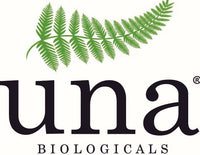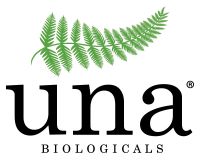
The Benefits of Using Essential Oils for Natural Congestion Relief
Spring is here and with it: allergy season. And post-pandemic your resistance to germs may have you suffering from a cold, a sinus infection, or, yes, even the flu. These common causes of sinus congestion can cause pain, interrupt sleep, and be very distracting. If your nose and/or sinuses are congested and you’re fighting constant sinus drainage, you may be wondering about the benefits of essential oils for sinus infections and other issues. Thankfully, there’s a long list of what essential oils can help with, and relieving swelling and opening nasal passages are on the list.
Essential oils are popular as a natural remedy. People use them to relieve sinus congestion, unblock a stuffed nose, and promote sinus drainage. There is also evidence that essential oils may improve related symptoms, such as reducing inflammation, fighting bacterial infections, and relieving pain. These properties may help relieve symptoms associated with congestion.
A Healthline.com article, Can Essential Oils Treat Sinus Congestion? relates that for many people, over-the-counter (OTC) decongestants are not an option. For some, OTC decongestants cause drowsiness, headaches, restlessness, high blood pressure, or a rapid heart rate.
For instance, they can interact with prescription medications and aren’t recommended for people with multiple conditions, such as pregnancy or high blood pressure. For this reason, the article states, essential oils are a popular alternative treatment for sinus congestion.

What Are Essential Oils?
Some synonyms for "essential" include: vital, indispensable, crucial, and critical. While these might apply when one is in the throes of sinus congestion pain, they're called "essential oils" because they capture the "essence" of a plant. (A bit of a let down, we know!) Essential oils are compounds obtained from plants via distillation or mechanical methods such as cold pressing. The oils capture the plant’s unique aromatic compounds, scents, and flavors. Many have been recognized for generations as having healing properties.
Una Biologicals offers a wide variety of essential oils and blends that may be helpful in alleviating sinus congestion.
Peppermint Essential Oil
Peppermint oil contains menthol which can help to open the airways and clear mucus.
Many people find that inhaling peppermint oil feels good when they have blocked sinuses. This is because of it has a cooling effect and affects the mucus receptors in the nose, helping to open the airways and clear mucus. Studies show that peppermint oil may fight bacteria, one of the triggers of sinus congestion. Place a few drops of the oil in a bowl of warm water and breathe in the steam for a few minutes until the stuffiness and other symptoms subside. Alternately, a diffuser can fill the air with this essential oil.

Eucalyptus Essential Oil
Oil from the eucalyptus plant is common as an alternative remedy for sinusitis and congestion.
Many over-the-counter decongestant products contain eucalyptus oil which contains cineole. This compound is known for its mucolytic and spasmolytic action on the respiratory tract with proven clinical efficacy. Many believe that this oil can relieve the symptoms of colds and coughs, including sinus congestion and stuffiness. Use eucalyptus oil in steam baths, like peppermint oil, to clear stuffiness and congestion in the nose.
Tea Tree Essential Oil
Tea tree oil, also known as melaleuca oil, is an essential oil that comes from steaming the leaves of the Australian tea tree. When used topically, tea tree oil is believed to be antibacterial. Tea tree oil is commonly used to treat acne, athlete's foot, lice, nail fungus, and insect bites. When inhaled, it may improve sinus congestion by fighting two potential causes: bacteria and viruses. A compound called alpha-sabine in tea tree oil provides antiviral, antibacterial, and antifungal effects. It may also reduce inflammation, which could help bring down sinus swelling. Reduced swelling often relieves the symptoms of congestion, such as a runny or stuffy nose.
Care should be taken not to take tea tree oil orally. If swallowed, it can cause serious symptoms.

Clary Sage Essential Oil
Clary sage oil is a very popular essential oil amongst aromatherapists. It is well known for its anti-depressant and stress-reducing qualities, but it fights sinusitis or congestion caused by bacteria. Asthma sufferers know it as an antispasmodic and nervine tonic, applying diluted clary sage oil on to their pulse points throughout the day. Clary Sage oil blends well with citrus oils such as lemon, lime, and wild orange, as well as other essential oils like frankincense, cypress, geranium, and sandalwood essential oils for diffusion.
Lavender Essential Oil
Common cold symptoms include fatigue and sleeplessness because coughing and congestion interrupts our sleep. Lavender oil helps promote relaxation and better sleep as well as easing congestion when inhaled. In addition to inhaling it, you can also simply put a few drops on your pillow before hitting the hay. Inhaling lavender oil may reduce pain and swelling in the sinuses.
Lavender oil may improve symptoms of sinus congestion by reducing pain and swelling.

Rosemary Essential Oil
Rosemary is another anti-inflammatory essential oil that may relieve swollen sinuses. Researchers have found that rosemary is a rich source of antioxidants and may help manage metabolic syndrome.
Breathe Freely Essential Oil Blend
Una Biologicals Breathe Freely is a natural essential oil blend for easing congestion. Made with eucalyptus essential oil, rosemary essential oil, camphor, and more, this vapor-y blend is perfect for your diffuser, to use as a shower steam, or just to enjoy.

Bandits Essential Oil Blend
Una Biologicals created this blend using a recipe used by bandits during the plague. Every European country has a tale about these essential oils keeping bandits healthy and plague-free so they could continue their thieving ways. Today we use this blend as a natural antimicrobial aid. Add to your diffuser, shower, or make your own spray.

Ways to Use Essential Oils
There are several ways to apply essential oils for maximum benefits. The steam inhalation process above is one of our favorites. Here are a few other options:
- Diffusers: Essential oil diffusers come in many varieties, and each offers an efficient way to fill your space with beneficial plant essences. For best results, consult the directions for your specific diffuser model, then start experimenting with your favorite single oils or combinations.
- Topicals: While essential oils can certainly be applied to the skin as either therapeutic fragrance or skin support, they must be diluted to a safe level to avoid potential health risks. Test for an allergic reaction by applying a few drops of diluted essential oil to the skin. If there is no reaction in 24 hours, it should be safe to use. In a 10 mL roller bottle, combine 5 to 10 drops of essential oil with a carrier oil like jojoba, olive, or sweet almond oil, secure lid, and shake to mix. Then, apply the diluted oil under the nostrils or across the chest.
- Inhaling steam: Add a few drops of essential oil to a bowl of boiling water and inhale the steam. Placing a towel over the head can create a steam chamber.
- For on-the-go relief, you can inhale your sinus supporting essences directly from the bottle. Simply open the bottle, bring a few inches from your nose, close your eyes, and breathe in. Or add a few drops of essential oil to a tissue and hold it close to the face while breathing in.
- Adding to a bath: Add a few drops of essential oil to a bath and gently inhale while soaking.

Essential Oil Safety Precautions
Essential oils are made up of the aromatic volatile oils of plants and are quite potent, so safety is key when working with these valuable plant compounds. Here are a few tips to keep in mind:
- Do Not Ingest: Some companies consider it safe to ingest essential oils internally, but we and many other natural health practitioners strongly disagree.
- Dilute: Essential oils should be diluted in a carrier oil before topical use.
- Avoid the Eyes: Essential oils can irritate eye tissue and can be difficult to flush out, so avoid splashing or rubbing your eyes when working with them.
- Use Caution if Pregnant: Many essential oils are contraindicated during pregnancy, so check in with your healthcare provider before use.
- Choose Quality: Do your research to ensure you are purchasing only high-quality, pure, and therapeutic-grade essential oils. Many products marketed as essential oils have been found to be diluted, contain synthetic chemicals fragrance oils, or made from plant material too degraded to be effective. Una Biologicals essential oils are free from chemicals, additives, harmful ingredients and artificial fragrances.
- Less Is More: Essential oils are precious! It takes a large amount of plant material to make a very small amount of oil, so be sustainable and use sparingly!
Other Ways to Help Ease Congestion
- Use a humidifier or vaporizer.
- Take long hot showers or breathe in steam from a pot of warm (but not too hot) water.
- Drink lots of fluids. This will thin out your mucus, which could help prevent blocked sinuses.
- Use a nasal saline spray. It’s salt water, and it will help keep your nasal passages from drying out.
- Try a Neti pot, nasal irrigator, or bulb syringe. Use distilled, sterile water or water that’s been boiled and cooled to make up the irrigation solution. Rinse the irrigation device after each use and let it air dry.
- Use a micro-current wave device. The device is placed on the face and emits painless vibrations that gives relief.
- Place a warm, wet towel on your face. It may relieve discomfort and open your nasal passages.
- Prop yourself up. At night, lie on a couple of pillows. Keeping your head elevated may make breathing more comfortable.
- Avoid chlorinated pools. They can irritate your nasal passages.



